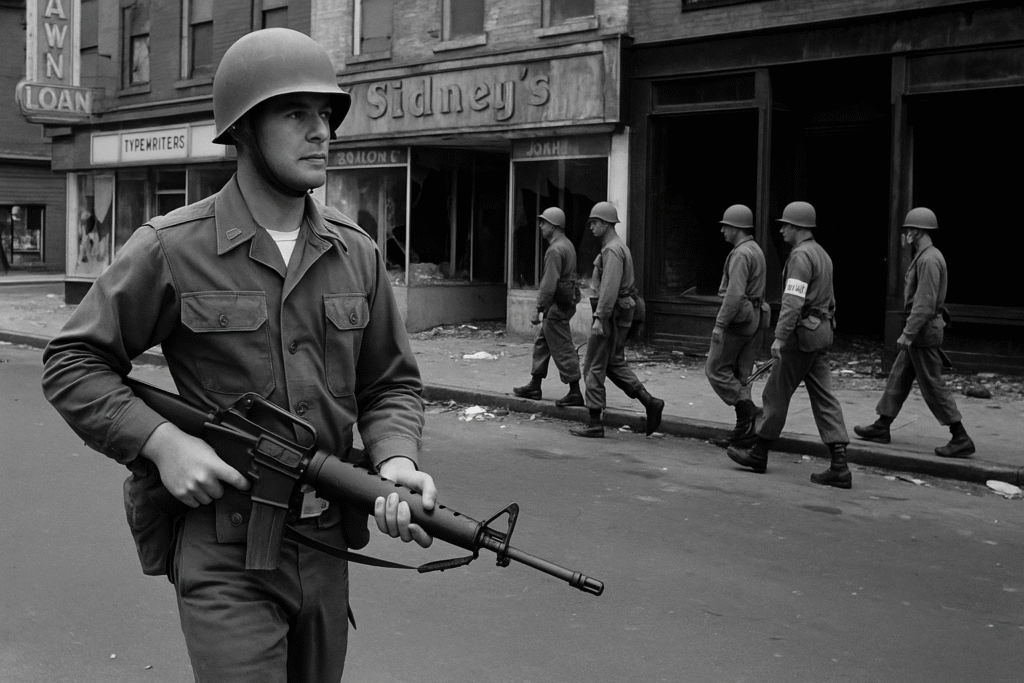The expansion of federal authority in Washington, D.C. through the deployment of National Guard troops has revived comparisons to earlier moments in the city’s history when federal forces were called in to maintain order. While uniformed soldiers are again a visible presence on the streets, analysts emphasize that today’s situation is far less severe than past crises, most notably the 1968 riots following the assassination of Dr. Martin Luther King Jr.
The 1968 Riots and Federal Response
In April 1968, the capital endured one of the most destructive urban uprisings in U.S. history. Over the course of several days, businesses were looted, entire neighborhoods burned, and law enforcement struggled to contain the unrest. Federal authorities deployed more than 13,000 troops and National Guard personnel to restore control. The violence left dozens dead, thousands arrested, and vast areas of the city scarred. That intervention remains one of the most significant examples of the Guard’s role in addressing domestic upheaval.
Today’s Deployment
By contrast, the current deployment of Guard units from West Virginia, South Carolina, and Ohio is described by federal officials as a precautionary measure designed to support law enforcement and preserve public order. Critics, however, argue that the move amounts to federal overreach into local affairs, pointing to Washington’s limited self-governance as a federal district.
Despite concerns, today’s protests have been mostly peaceful. Demonstrators have expressed opposition to what they call the “militarization” of the capital, while the administration maintains that the presence of troops is temporary and preventive rather than a reaction to widespread disorder.
Efforts to Reduce Tensions
In an effort to calm the situation, negotiations between federal authorities and city leaders led to an agreement allowing D.C. Police Chief Pamela Smith to remain in her position. The compromise has been seen as a way to maintain local oversight of policing while addressing federal security concerns, preventing a full transfer of control to federal forces.
Future Outlook
Although security remains heightened, the atmosphere in Washington is markedly calmer than in 1968. Observers note that the current challenge lies in ensuring federal involvement does not erode trust, escalate tensions, or undermine democratic processes. The balance between protecting public order and respecting local governance, they argue, will shape how this intervention is remembered in the city’s history.


